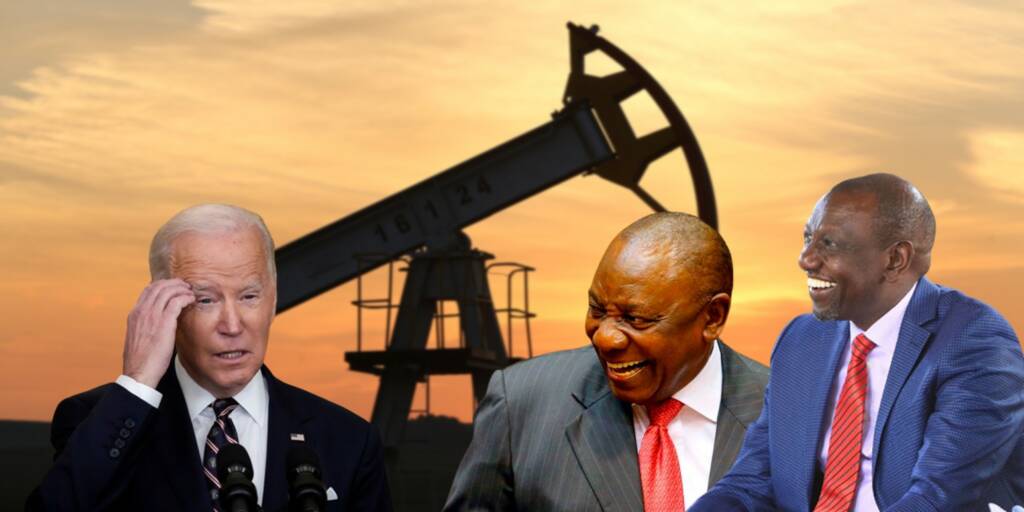The Russo-Ukraine war has ignited the importance of resource-rich continent named Africa. Gasping for oil and energy supplies, the Western nations have started a new scramble for Africa. United States Secretary of State Antony Blinken recently visited three African Union (AU) member-states in August in an attempt to rejuvenate ties. German chancellor Olaf Scholz tried to gain support of the African nations during his first visit to Africa in May. Even, French President Macron journeyed to Africa in June to “renew relationships” with the continent. But all their attempts to woo the African nations have failed miserably. This has prompted the gas-starved greedy Western countries to plunder African oil and hinder African development trajectory.
Expanding oil and gas exports would endanger the financial stability of many nations of Africa, according to a recent research from the London-based think tank Carbon Tracker. This report comes at a time when the top five oil and gas firms have made profits totalling more than $170 billion so far this year, and when gas prices are very high. Sounds absurd, right?
Well, you see, Western think tanks have long been used as instruments to further the foreign policy goals of Western nations. Furthermore, the timing of the research at a time when African countries are making significant strides toward becoming a dependable global supplier of oil and gas cannot be merely coincidental.
To be clear, Western nations have long attempted to obstruct the ascent of Africa using non state actors like NGOs, think tanks et al. The West would never benefit from an assertive Africa. Africa’s enslavement served as the foundation for the riches of western nations. The rapid development of the so called developed countries invariably depended upon what Andre Gunther Frank called the “development of under development” of poor countries across the world and notably Africa and more specifically Sub- Sahara and East Africa. Make no mistake, the recent report cautioning Africa about exporting its oil and gas resources should only be seen in this context.
Africa turns self-assertive
In the wake of global protectionism brought on by the COVID-19 pandemic, Africa has begun to comprehend the significance of self-sufficiency. Additionally, the crisis that wrecked havoc on Europe due to its excessive dependence on Russian energy sources has only served to incentivize African countries to commence reducing their reliance on Western countries.
Recently, there were reports about the Central African countries including major oil producers like Equatorial Guinea, Cameroon, Gabon, Chad, Angola, Democratic Republic of Congo and Congo Republic agreeing to establish a regional oil and gas pipeline network in an effort to boost their energy security and move toward economic self-sufficiency.
Moreover, both Uganda and Tanzania are also building the East African Crude Oil Pipeline (EACOP) project, stretching 1,443km (896 miles) from Lake Albert in western Uganda to the Tanzanian port of Tanga on the Indian Ocean.
Today, the European nations are being hoisted by their own petard. Now, Africa has the negotiating leverage to steer any proposed agreement with the West in a way that benefits it. African countries have made it crystal clear that they will not allow Western countries to continue plundering them.
African political and economic systems have always been undermined by global political and economic systems, lagging behind in global socioeconomic and political advancement for ages. Africans have long put up with the discriminatory treatment they receive from international think tanks like Carbon Tracker. These organizations have historically had a substantial bias in favour of wealthy and developed countries.They function as an aristocratic organization where the rules are written by and for the developed countries for the world. Therefore, the African nations should regard any reports from these prejudiced organizations with prudence.
https://www.youtube.com/watch?v=CvLcf3SRAcA
